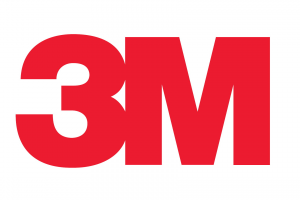KPMG in Central and Eastern Europe: Global financial crisis makes region’s automotive sector leaner and meaner
23.02.2009Company: KPMG Česká republika, s.r.o.
The world is not yet coming to an end – at least not for manufacturers in the auto sector in Central and Eastern Europe (CEE).
See the company profile | ČESKY (Světová finanční krize zeštíhlí automobilový sektor ve střední a východní Evropě)
So says KPMG’s new report Benchmarking the Auto Industry in CEE: Creating and Preserving Value for the Long-Term 2009. Despite the US auto industry facing potential bankruptcy and receiving a bailout from the government, in CEE enterprises in the auto sector will find ways to tighten their belts and prepare for the future.
“The Big 3 – General Motors, Chrysler and even Ford – may be close to bankruptcy, but the picture is different in CEE,” explains Andrew Sutherland, Head of Automotive Sector for KPMG in Central & Eastern Europe. “Suffering here in many countries is a reduction in economic growth – the auto sector will be hit the hardest, but these enterprises have had some good years and will have re-tooled. So while there may be total shutdowns in production elsewhere, in some of the stronger performing factories in the region they may only reduce the number of shifts.”
The CEE Benchmarking Survey looks at factors like how to help enterprises create and preserve value, manage risk and increase margins. “It’s obviously very hard to do all that at the same time. You must have balance.” says Andrew Sutherland.
The auto sector in CEE, until recently, has been extremely dynamic and an engine of growth and value. Well established manufacturers have been following vehicle makers to Central Europe where they have great proximity to markets and materials and an excellent workforce who provides great value – not only are costs less, but the workforce is very productive, and the environment is very good in comparison with the West, which is often highly unionized. While it is not immune to the effects of the global downturn, CEE may offer manufacturers in the sector opportunities for making their operations more efficient.
Retention of high quality labour
In terms of labour the manufacturers report different strategies concerning their workforce depending upon their financial state. The good ones can keep their workforces on board, while the others let employees go, so they’re not just cutting fat but meat. Retention of high quality labour is a major risk, according to the CEE Auto Industry Survey participants.
“Companies were having a hard time meeting labour demands and sometimes had to go outside their own countries and bus in workers,” says Andrew Sutherland. “So in an environment where you have pressure to let their workers go, some of these companies are getting themselves into a vicious circle because they’ll be unable to hire good quality workers when good times come back.”
It is so important to have a lean workforce, because manufacturers just can’t afford cheap labour - good quality labour is more productive and ultimately cheaper.
Inventory levels and cash flow
In such tumultuous economic times it is important for these enterprises to look at their inventory levels and cash flow. The price of cash in this environment is very expensive, about half of participants in the KPMG survey said that their inventories were too high. Inflation has also proven to be a top-of-mind risk issue among auto industry firms in CEE, and responses from the KPMG survey participants bear this out.
“What distinguishes our region,” says Andrew Sutherland “is that it’s a more dynamic environment and has had faster growth, which makes for greater volatility.”
Changing legislation
Administration at firms in CEE is also a key risk area: legislation is constantly changing, oftentimes contradictory, and manufacturers in CEE say they do not have the resources to address such regulatory issues. That is why for specific issues like tax compliance, enterprises that employ a consistent, more “holistic” approach can do a better job of managing their tax obligations, not paying more than they have to.
Other key findings of the study:
- While standardization and integration appear to be the norm, a “one size fits all” approach is used only about one-third of the time for all companies and less than 20 percent of the time in the case of high performers.
- The biggest concerns for the CEE auto sector are issues relating to worker’s health and safety – a response in line with the overall competitiveness of the labor market and a general concern for local regulations over global regulations.
- High performers were more likely to view hazardous waste (55 percent) and water usage (45 percent) as significant issues than were all companies (49 percent and 29 percent, respectively).
- Overall, more than 60 percent of all companies estimate financial and corporate governance compliance costs to be less than one percent of total sales. About 20 percent of all companies estimate costs at between one and two percent, and less than 15 percent of companies at greater than three percent.
- In contrast, about 60 percent of high performing companies estimate the cost of financial and corporate governance to be more than one percent of total sales and more than one-third of high performers estimate costs at greater than three percent.
- The overall economy appears to be of biggest concern for all companies and high performers alike, while for the CEE auto sector, financial risk; operational & supply chain risk; and human resource-related risks are more top of mind.
- High performing companies (20 percent) were almost twice as likely as all companies (just over 10 percent) to view regulatory risk as top of mind.
- All companies in our survey are concerned with credit risk management processes, including assessing customers and suppliers, credit terms and credit controls. Invoicing speed and accuracy from automated invoicing is important to the high performing companies, as well as for the CEE auto sector.
- High performing companies take security risks more seriously (100 percent) than all companies (slightly less than 50 percent).
- Understanding IP protection was viewed as a challenging risk for less than 10 percent of companies in the CEE auto sector.
- Surprisingly all high performing companies – but only 5 percent of companies overall – emphasized relations with unions while typical companies are finding recruitment and retention difficult.
- High performing companies are less concerned about GDP risk than other companies, while all companies (but especially high performers, and even more so the CEE auto sector) cited exchange rate exposure as a challenge.
- High performing companies overwhelmingly prefer (67 percent) to enter new markets through acquiring new companies compared with the typical company in our survey (just over 30 percent). High performers are also more likely to enter markets through third parties (33 percent) than are all companies (22 percent).
- Surprisingly high performing companies are not big fans of low cost country sourcing. A larger percentage of this group (40 to 60 percent - depending on what was sourced) did not employ low cost country strategies for a variety of sourcing needs including raw materials, components, and manufacturing.
- But high performing companies are more likely (33 percent) than all companies (five percent) to be focusing on potential tax benefits from operating in low cost countries.
- High performing companies are also less concerned (16 percent) than all companies (38 percent) with their supply chain.
- While most companies in our survey are satisfied with their inventory levels, the companies from the CEE auto sector were evenly split – 50 percent felt they were too high, while 50 percent felt they were appropriate.
- High performing companies are twice as likely (30 percent) as all companies (13 percent) to have IT platforms that minimize and automate operational work allowing for maximum focus on management decision making.
- A focus on automating processes is the main priority for most companies. Most companies have achieved at least some level of automation (98 percent) but few have achieved their maximum potential (13 percent).
About the study
The KPMG Survey questioned 25 auto component manufacturers within Central and Eastern Europe and used information from KPMG’s global Automotive practice to serve as a basis for comparison to benchmark business practices within the region.







